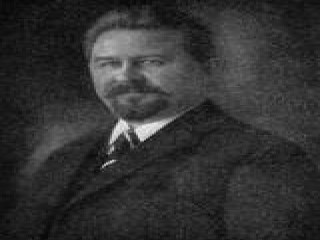
Fritz Robert Graebner biography
Date of birth : 1877-03-04
Date of death : 1934-07-13
Birthplace : Berlin, Germany
Nationality : German
Category : Arhitecture and Engineering
Last modified : 2010-10-09
Credited as : Anthropologist, developing the theory of Kulturkreis,
1 votes so far
Life
Graebner was born on March 4, 1877, in Berlin, Germany, to a schoolteacher. He attended school in Berlin from 1887 to 1895, after which he enrolled into the universities of Berlin and Marburg (1895–1901) where he studied history, German philology, and ethnography. He received his Ph.D. in 1901 from University of Berlin, with a dissertation on medieval history.
Graebner worked at Berlin Museum of Ethnology as an auxiliary scientific assistant, until 1906 when he transferred to the museum of ethnology in Cologne (Rautenstrauch-Joest Museum). He became a full assistant there in 1907, and the museum director in 1925.
In 1911 he became a privatdocent at the University of Bonn. In the same year he published a work Methode der Ethnologie (Method of Ethnology), which became the groundwork for the culture-historical approach to ethnology.
Before the start of World War I, he traveled to Australia to do research, when he was captured by the Australian government for being a German. Graebner did not waste his time though, but engaged in studying the differences in Hamito-Semitic, Mongolian, Indo-European, and Polynesian myths. He also applied his theory of culture circles in his study of different calendar systems. He was released from captivity in 1919.
In 1921 Graebner was appointed visiting professor at Bonn and in 1926 became an honorary professor at the University of Cologne. However, he developed an illness which kept him from doing any serious scientific work. He spent only two years at the University of Cologne, and retired in 1928.
Graebner returned to his native city of Berlin, and died there on July 13, 1934.
Work
Graebner became known in the field of ethnology through his lecture Kulturkreise und Kulturschichten in Ozeanien, delivered in 1904 at a meeting of the Berlin Society for Anthropology, Ethnology, and Prehistory. In it he used the term Kulturkreis, which had been in use already by some ethnologists, and expanded on it with his own ideas. He took some ideas from Friedrich Ratzel (lebensraum) and Leo Frobenius, as well as the ideas of cultural diffusion” and the "elemental ideas" (Elementargedanken), as used by Adolf Bastian, and employed them in his theory of Kulturekreistehere (culture circles).
Graebner opposed the prevalent theory of his time, which suggested the more or less unilinear evolution of culture. In his work Graebner described different patterns of cultural distribution. He believed that a limited number of cultural circles (Kulturkreise) developed throughout human history, and that all cultures, at present and in the past, resulted from the diffusion of cultural traits from these cultural centers. He argued that the history of any culture could be reconstructed by analyzing the cultural elements of that culture and tracing those elements to one or more Kulturkreise.
Graebner proposed that the basic mechanism of transferring cultural traits from one culture to another was the principle of diffusion. According to that, two cultures that are in physical (geographical) proximity “borrow” elements from each other, be it through inter-marriage, trade, warfare, or any other form of communication, and apply them into their own cultural context. He thought that similarities between cultures were the result of cultural influences, rather than of a universal human nature.
He regarded patrilineal and matrilineal cultures not as sequences in cultural development, but as two independent cultural forms that coexisted with each other. Graebner claimed that in matrilineal cultures animism, worship of the dead, and lunar myths played more significant roles than in patrilineal cultures, which were influenced by magical beliefs and sun myths. His final major work, Das Weltbild der Primitiven (1924), included more detailed development of those ideas.
Graebner was also very interested in religious phenomena. He rejected the idea that all religions could be traced back to primitive religions (such as animism), as claimed by anthropologists such as Edward Burnett Tylor and James G. Frazer. Instead, Graebner argued, different cultures developed particular religious expressions, typical of the culture circle from which the culture emerged.
Legacy
Graebner summarized his scientific views in his 1911 work Methode der Ethnologie, which although receiving a devastating review from Franz Boas, became the foundational work for the Kulturkreis theorists. His work influenced other European anthropologists such as Wilhelm Schmidt, the founder of the journal Anthropos, who sought to develop and refine Graebner's thesis. Although his work influenced some American anthropologists, such as Clyde Kluckhohn, later scholars dismissed his ideas, arguing that human culture is too complex to have developed based on the interactions Graebner described.
















